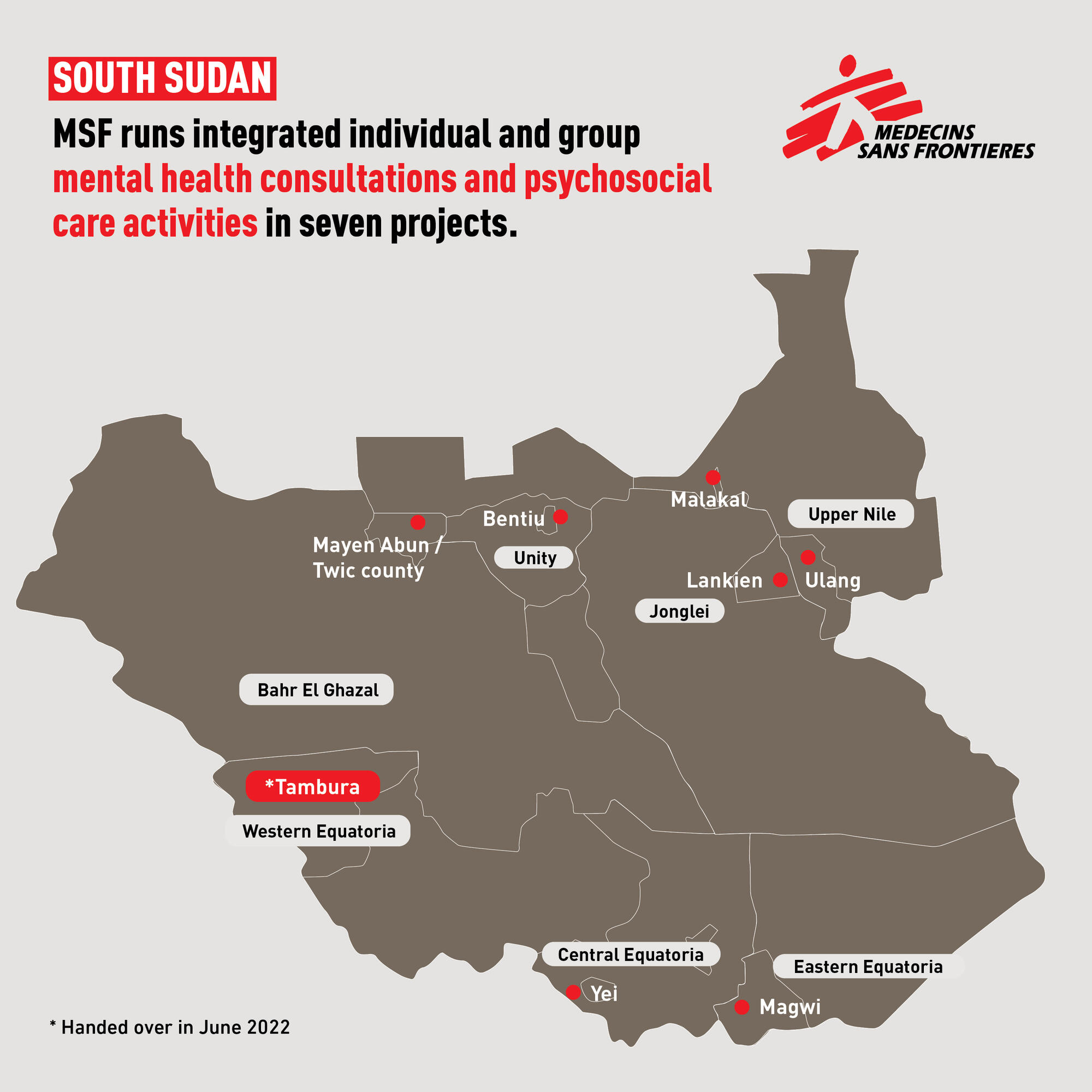When Doctors Without Borders/Médecins Sans Frontières (MSF) launched an emergency response in Tambura, in South Sudan, last December, our teams found a community devastated by conflict. Some 80,000 people were displaced by the violence, a significant proportion of the community had been killed, and the looting and destruction of the only hospital meant that people had no access to medical care. Much of the fighting happened along ethnic lines.
MSF teams immediately began providing comprehensive, community-based mental health services in and around the displacement camps where many people were sheltering in Tambura, in Western Equatoria state. Mental health workers tried to normalize speaking about the psychological problems people were facing and to provide access to care.
Through sharing their experiences, people began collectively processing their trauma and coming to terms with what happened to them.
These are a few of the stories we heard from survivors in Tambura.
Mark Moses Tagiapaite
This crisis started in February 2021. It started off with rumors: “This man was killed yesterday, this home was burned yesterday.” But the rumors turned out to be reality. We didn’t know who was carrying out the attacks. During the day it was okay, but the nights were terrible—we didn’t know who was going to be killed next. People were living with great fear inside of them. It was very difficult to sleep until morning came, until we heard that nobody was killed that night. That’s how it was.
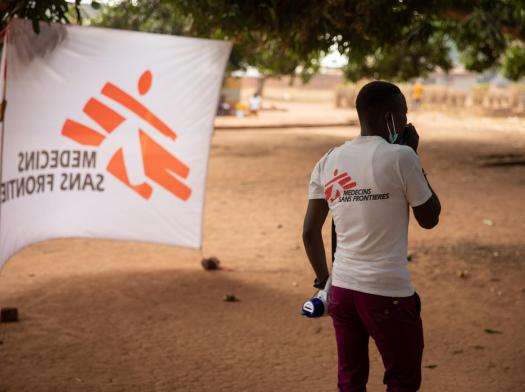
MSF health promoter Mark Moses speaks through a megaphone, encouraging parents to bring their children to MSF for their measles vaccination. As a survivor of conflict himself, Mark understands the importance of comprehensive physical and mental health care after a crisis.
It gradually became clear that this was an ethnic conflict. People fled to the different camps, leaving their houses and belongings to preserve their lives. It was July 1, 2021, when we fled to the camp—it was just too dangerous for us to stay. We made it here, but many more did not. A lot of people died in this conflict; innocent people died for no reason.
When you run from your home, you can’t take everything. We thought this situation would last two or three weeks, and then people would go home. But the people perpetrating this violence came to our house and took everything we had, then burned it. Everything is gone. They say now that people should go back to their homes, but my home was burned down. Where will we go? Where should I take my kids? Where will we stay? We are surviving now because we have a tent in the camp.
I started working with MSF in the camp as a community health promoter and educator. This means playing a big role in the community—educating people about health and encouraging them to go to the hospital or the nearby clinic whenever they are sick. This is my work and my role in the community and I’m happy to do it—I love the work.
There are a lot of us working here—a team for health promotion, a team for mental health, and others. The mental health team plays an important role; there are people here who lost their loved ones and their homes, and now they live in a camp with nothing to do apart from eating and sleeping. It’s important that they have somewhere to turn.
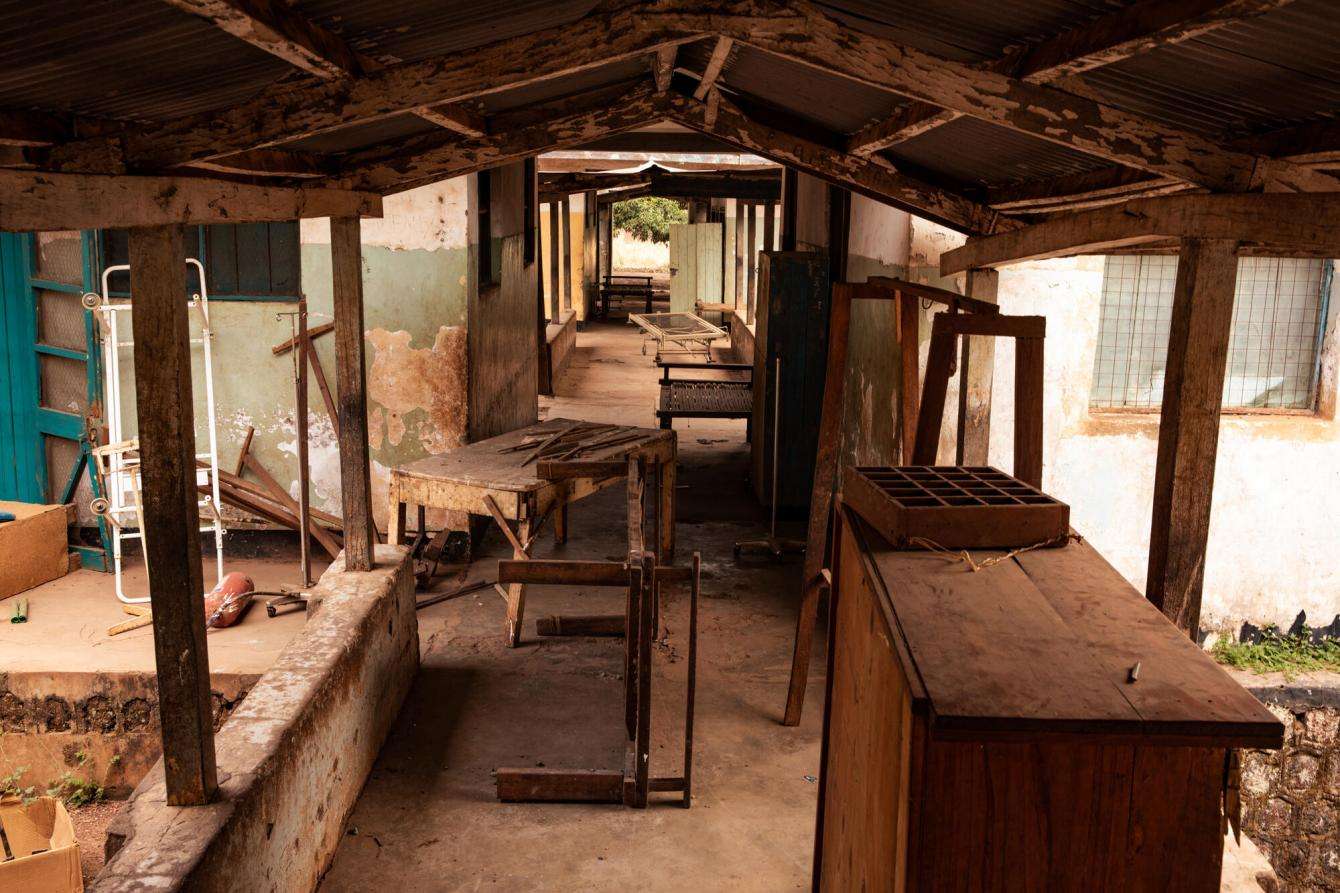
Maria Lucia Zemoni
I was born here in St. Mary’s in 1955. I was one of 13 children, and now I am the last survivor. I live here in the camp with my husband, daughter, and 12 grandchildren.
Before the conflict, we were farmers. One day I was there with four of my grandchildren at the farm and suddenly there were gunshots everywhere. I don’t know how the fighting began, but we all ran.
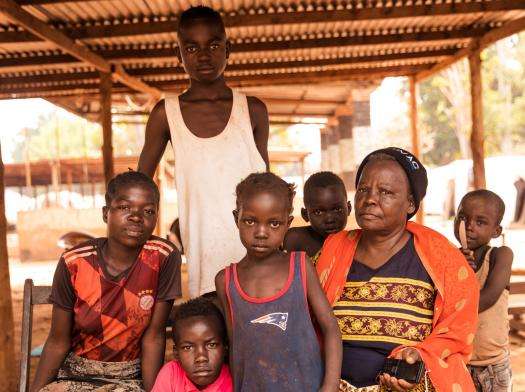
Maria Lucia Zemoni sits with some of her 12 grandchildren in a camp for displaced people.
We ran to the bush and were only safe when we reached the camp here at St Mary’s, which is about 20 kilometers [about 12 miles] from our farm. It took us seven days by foot to get to the camp here. I ran here because this is where I was born—if I die, I want it to be here. I want to be buried here in the cemetery where my relatives are.
Very few people were brought here with wounds during the fighting—I only saw two. Most of those who were wounded didn’t make it to the hospital—there were a lot of bodies brought here. It was even too dangerous to collect food or water—those who dared to go and bring it back for us were being killed. My brother was one of those people. We were here all together in the camp and my brother and his two teenage sons went out to find food for us, but they never came back. We know where their remains are, but if we try to reclaim them, we will die too. My brother was older than me; I followed him throughout my life, and I looked up to him.
I lay awake at night wondering what I could give the children to eat in the morning. I still haven’t been home, and I left everything I own there; when we ran, we ran with nothing. I knew that if one of the children fell sick, there would be nothing I could do. I was helpless; I wanted to kill myself.
I heard about the mental health counselors at MSF who were helping people cope with their emotions and the situation, so I sought them out. They helped me with some of the feelings I was having, and eventually I managed to understand them, and it started to get better. Now I have more energy. I do what I can to provide for the children, but people here still need food, water, health care, and schools. What will the future be like for these children if there are no schools?
Trezina and Mizanga
I came here to the camp with my daughter. When the violence began, we were working at the farm. We heard gunshots at night, and that was when we left. We were running and didn’t stop to take things for cooking, or clothes for the children. We were with my sons when the shooting started, but we ran in different directions and lost each other. My two sons were killed, but their bodies were never found.
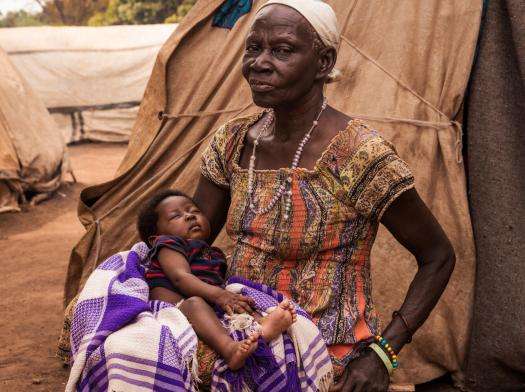
Trezina holds her grandson Mizanga in a camp for displaced people.
We came straight here to the camp, walking through the bush at night, stopping to rest just once. Now we have nothing. The World Food Program (WFP) came and gave us some money when we arrived, but it’s gone now. We can’t go home with young children unless everybody goes home.
I lost my sons and all my nephews in this conflict. This baby is my grandson. We named him Mizanga, which means ‘I have lost’ in our [Azande] language. We named him in memory of those who died, like his father. Now we will depend on Mizanga; he will represent those who didn’t survive.
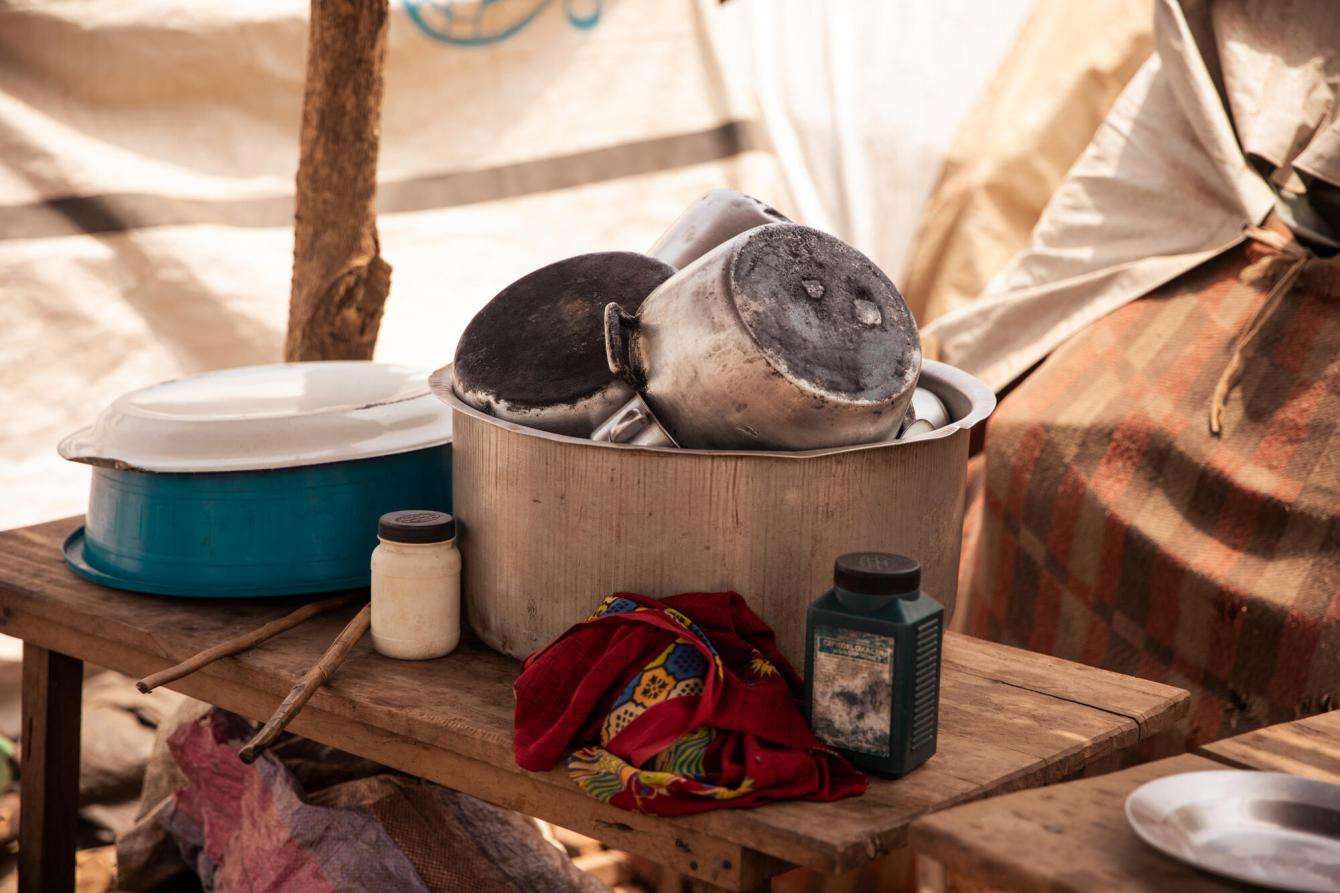
Joseph Kondo Kosa
Before the conflict, I was a farmer. I grew the crops primarily to sell, but there were enough for us to eat too.
I was at home when it happened with my older brother Michel and the rest of the family. It was morning when two men on a motorcycle pulled up, came into our house, and started firing. Michel was shot and died immediately. I ran with my wife and daughter to the forest, and the rest of the family scattered. People we knew went to the house and they took Michel’s body for burial; he was just 45 years old when he was killed.
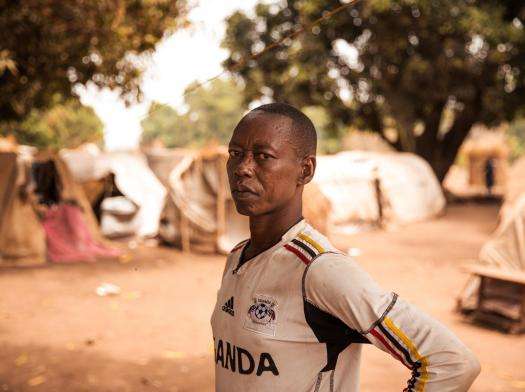
After losing his brother, Joseph, his wife, and their daughter fled to the forest. The family lived there for two months in a shelter that they built, collecting water and cassava leaves to sustain themselves.
My father, mother, other brothers and sisters had fled to different places, but I stayed in the forest with my wife and children for more than two months. Life in the forest was hard. There was no time to take anything from the house when we ran, and when I went back later to see what I could salvage, everything had been stolen. I was only able to get a plastic sheet and a blanket to make a shelter. But the sheet was too small for all of us, so when it rained, my wife and daughter stayed under the plastic and I used the tree for shelter.
Every time we went for water, we had to avoid using the same path twice. Otherwise, they would have tracked and killed us. We collected drinking water from a pond, but when we arrived, we would stay a few meters away, remaining very still and quiet to make sure there was no one around and nobody watching. Only then could we safely fetch the water. We survived on things like cassava leaves for food.
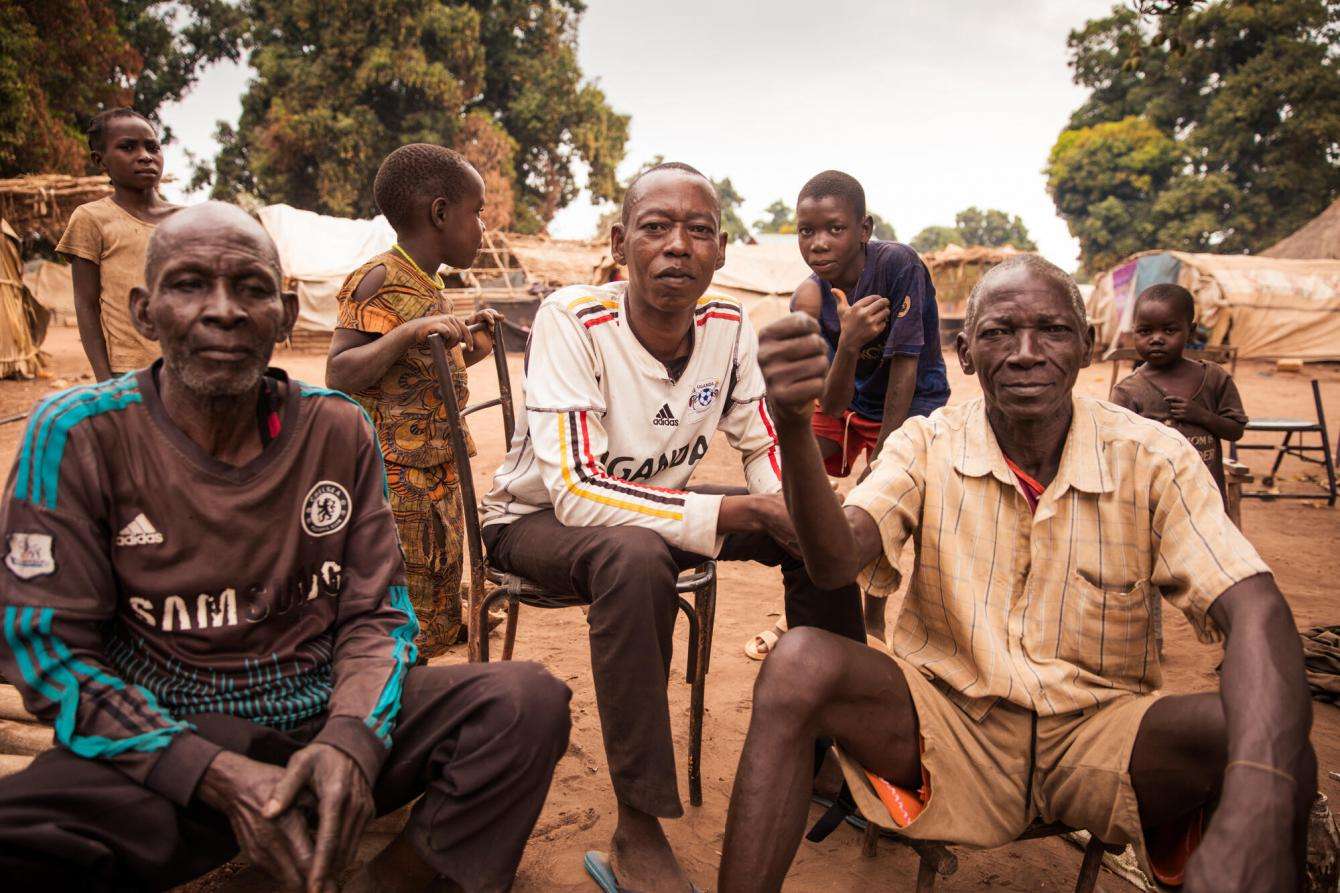
Now I live here in the displaced persons' camp with just my wife and daughter, near my brother’s grave. We’ve been here in the camp for five months. We felt safer when we joined the others from our community. I will not return home until things are calmer and more stable. I can’t go back to my farm yet, it’s just not safe.
What we lived through was hard. I want people to know that this conflict was good for nothing—it forced people to flee, and it divided us in every way possible.
Severna Joseph
I wasn’t with my husband and my 25-year-old son when they were taken. I heard from people in the community that armed men took them. The day I heard about my son and husband, I also saw armed men in the neighborhood—they were burning homes. I knew I had to leave, as the danger in the community was increasing, so I came here to the camp. Just hours after I fled, a friend called me to tell me that my nephew had been shot outside my house. Six of my family members were killed in this conflict, including my husband, son, brother, and nephew.
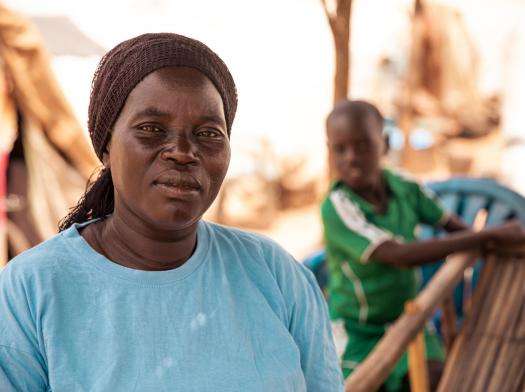
Six of Severna Joseph’s family members were killed in the conflict, including her husband and her son.
After I heard the news, I wasn’t in my right mind—I lost sense of who I am. I didn’t eat for two weeks. I didn’t take care of myself at all. The only family member I had left with me is my daughter. I felt very alone—if anything happens to me, there is no one to support me.
Eventually, people noticed that I wasn’t well. First, a priest came to talk to me, he was trying to call back my mind, bring me back to myself, and he encouraged me to take care of myself. Then the women’s group leader came to speak with me, and she too tried to bring me back to my senses by giving me psychosocial support.
I went to MSF for some counseling sessions and after a while, I started to find my feet again. The mental health counseling with MSF has been a big help. I am still struggling, and things are not perfect, but now I am beginning to understand what happened to me. I am beginning to work through these things, and for the first time in a while, I now have some hope for the future.
As the humanitarian situation improved, MSF teams handed over activities in Tambura in June 2022. The hospital and other health structures had been rehabilitated, and healthcare providers had returned to the area. Our staff made sure that critically ill patients were referred to adequate treatment facilities and donated an ambulance to the hospital. MSF continues to monitor the situation in Western Equatoria state and remains prepared to respond if conditions deteriorate and emergency needs arise.
MSF teams recently started an emergency project in Magwi county in Eastern Equatoria state, where fighting escalated earlier this year and displaced tens of thousands of people. The team integrated mental health care and psychosocial support into our services and ensured access to clean, safe, and adequate water and sanitation for more than 100,000 people.
All photographs by Scott Hamilton/MSF

